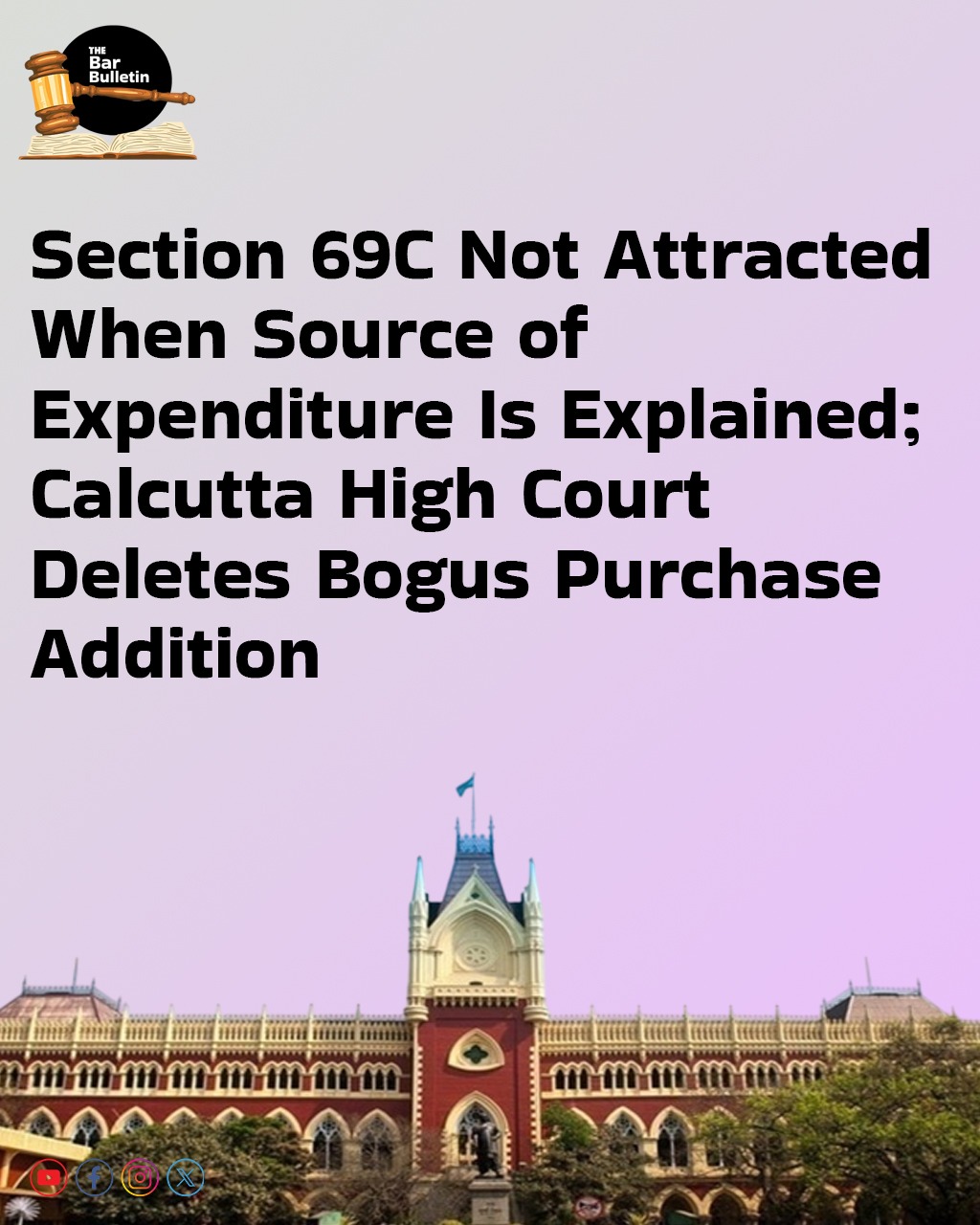The Calcutta High Court ruled that Section 69C of the Income Tax Act would stand attracted if the source of expenditure is not satisfactorily explained by the taxpayer before the AO, and then only it will be deemed to be an income of the taxpayer. The Court found that apart from merely alleging the purchases to be bogus, the AO never disputed the source of expenditure as not genuine. Further, the stand of the respondent that the genuine purchases of raw materials were further consumed in the production of finished goods and that they were added u/s 44AB, was sufficiently established, and remained undisputed by the AO.
The Division Bench comprising Chief Justice T.S. Sivagnanam and Justice Chaitali Chatterjee (Das) emphasized that Section 69C is applicable only when the assessee fails to satisfactorily explain the source of an expenditure. In the present case, while the AO alleged that the purchases were non-genuine, he did not dispute the source of funds used to make the payments.
The Court observed that the purchases were duly recorded in the books of accounts, disclosed in the audit report filed under Section 44AB, and reflected in the stock and production registers. The assessee had maintained RG-23A and RG-23C registers, which established consumption of raw materials in the manufacture of finished goods. These records were verified by the statutory auditor and cross-referenced with data maintained by the Tax Arrears Recovery (TAR) unit of the CBIC.
Further, the Court rejected the Revenue’s reliance on non-compliance of notices under Section 133(6), noting that the impugned transactions were over seven years old, and the non-availability of the suppliers at the given addresses could not, by itself, establish the purchases as fictitious.
The matter arose after the AO reopened the assessee’s assessment under Section 147, despite earlier acceptance of a NIL return. The reassessment proceedings led to an addition under Section 69C on the ground that the assessee had allegedly engaged in bogus billing.
The ITAT had set aside the addition, observing that the purchases were duly accounted for and the entire transaction trail was explained, including payment records to the suppliers. The High Court affirmed this reasoning, holding that the department failed to discharge the burden of proving the purchases to be bogus and that the invocation of Section 69C was legally untenable.
The High Court therefore dismissed the Revenue’s appeal and decided the issue in favour of the assessee.
Appearances:
Advocates Tilak Mitra and Amit Sharma, for the Appellant
Advocates Pratyush Jhunjhunwala, Sruti Datta, and Sakshi Singhi, for the Respondent



